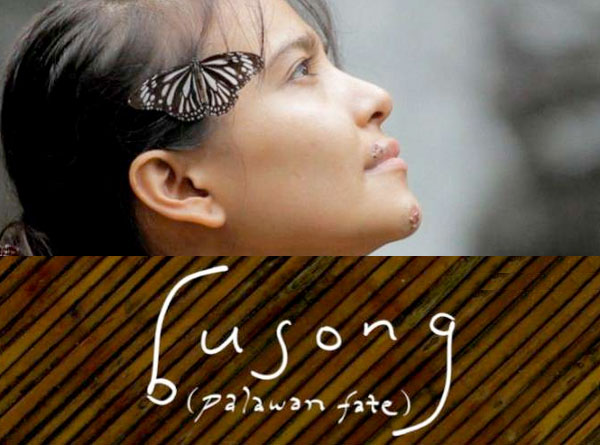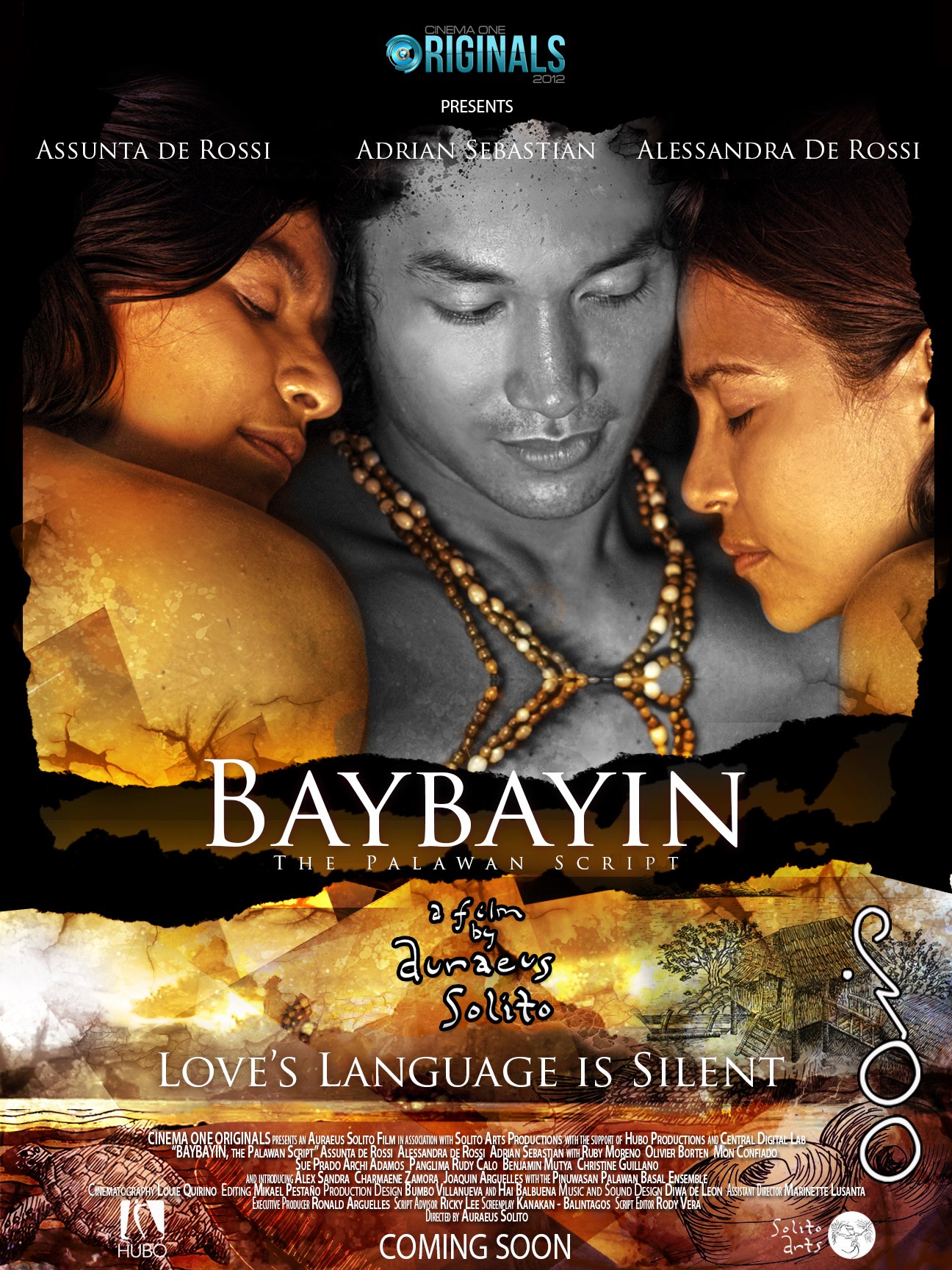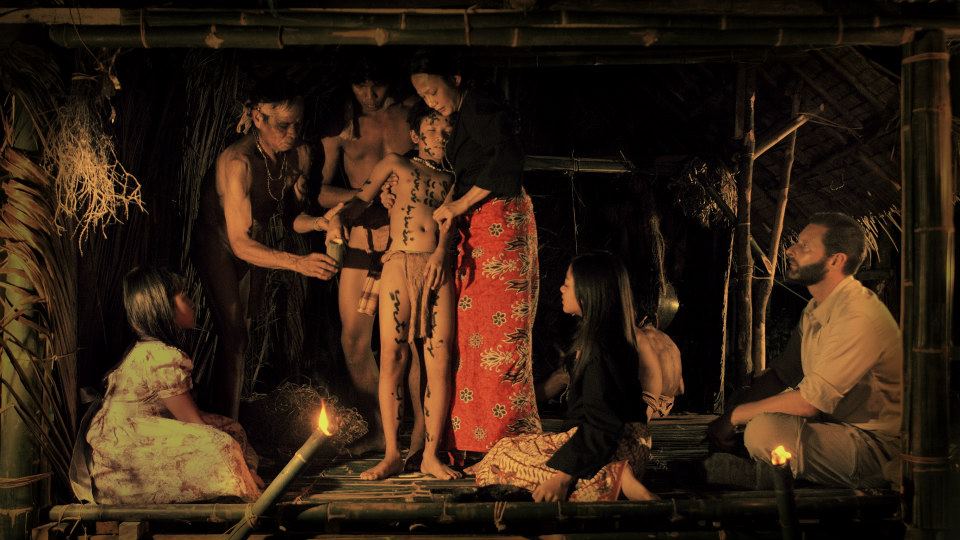Indigenous Cinema Through the Lens of Kanakan-Balintagos
Kanakan-Balintagos (Truth Seeker), formerly known as Auraeus Solito, is a renowned Filipino filmmaker. His films have screened internationally in Berlin, Sundance, Montreal, Pusan, Toronto and recently at the International Film Festival of India in Goa. Best known for his work The Blossoming of Maximo Oliveros (15 international prizes), he is currently at work completing a trilogy surveying the rich lineage from which Kanakan-Balintagos comes from.
Today, we review the first 2 films of this major trilogy. The first, Busong (Palawan Fate), was selected at the prestigious Cannes Directors’ Fortnight in 2011, and in 2012 was awarded Grand Prize, the Merata Mita “Best of Stories” Award, at the National Geographic All Roads Film Festival in Washington, D.C. The second, Baybayin, we caught at a private screening before it hit the international film circuit. Here’s a little preview of our thoughts before we release an intimate conversation with Kanakan-Balintagos, and encourage you all to catch a screening of Busong this Sunday in Oakland.
Hawa: Busong does a great job of conveying mythological time and the perpetual relevance of story. The film begins with a wounded girl carried by her brother who is looking for a cure. We come to learn the girl is the manifestation of the illness within the land, and the search for a cure is a stressful and confusing one. Many interactions with characters in the story highlight an unraveling of history that is rhizomatic, and Kanakan-Balintagos’ editing presents us with many intersecting paths that come to the most beautiful, pinnacle expression for cure and rebirth of motherland I’ve ever seen. The imagery, and the nestling of smaller stories within a larger one are what make this film captivating. We as the viewers must trust Kanakan-Balintagos’ direction and editing in order to follow his modern retelling of mythical tales, and I strongly urge two viewings of this one. (Fundraiser screening by Spectrum Sundays)
Jaqi: As the second in the trilogy, the film Baybayin continues to weave folk legend with the day to day struggle of the Palawán people to keep their ancestral land and ancient language alive. Baybayin beautifully engages the painful realities of a great forgetting brought along by conquest and an ever expanding imperialism. In Baybayin, Kanakan-Balintagos interweaves an ancient Palawán legend of two wives and the unfolding of a love story communicated in the sands through the waning Inbaloran, (the ancient Palawán script).
However, Baybayin is more than a love story to me. It is a call to remember what it might feel like to face the grief of colonization’s displacement of my people with grace and integrity. This film brings home the longing for a village of elders who might share with me the legends of my people and maybe even a pre-colonial language of the Philippines. By interweaving folk tales and cinema, Kanakan-Balintagos reminds me that no matter where one might end up along the winds of the diaspora, whether in the metropolis of Manila or elsewhere around the globe, one might find a way to reconnect with homeland through the continually passed on stories of place. Whole cultures are held in the stories told to children to soothe them while they fall asleep. In this way, Kanakan-Balintagos attempts to pass on the stories of his people to soothe not only the diaspora, but any others who might feel a similar grief of lost connection to points of origin.
As the final scene fades away from the sacred sand bar from which this film is shot, I am left with a feeling of wanting to continue to deepen my understanding of the stories that come from my lineages, from the land before it was called the Philippines, or on my father’s side, the land before it was called El Salvador. I also feel inspired to continue to learn more of the stories and myths that come from the peoples of the lands where I currently reside. I feel the power in learning the stories of others and how that might be conveyed through a diversity of mediums today, whether it be theater, painting or cinema.
Through his films, Kanakan-Balintagos is keeping these stories alive by weaving once oral traditions into contemporary accessible forms. This kind of knowing and remembering of folklore is a necessary form of activism in the face of colonization, and the spread of imperialism that has sought, by its very nature, to erase indigenous culture worldwide. The snatching of ancestral lands, corrupt “development” or farming on sacred sites, military aggression teaming up with foreign capitalists, and religious demonization of tribal people is a global reality that goes beyond the beautiful Palawan region and the Philippine islands. The struggle to keep language and culture alive and honor the lands from which they come from speaks of a different story in the face of cultural amnesia. In this way, I feel that culture can therefore never be truly conquered when people care to pass on its memory through language and story. For this I have much appreciation for Kanakan-Balintagos’ example of reminding people that oral traditions still exist even by way of cinema. I am honored to deepen this discussion with our interview to come.
Jaqi is our resident DJ and a contributor to Browntourage. She is currently diligently working on an EP. Set to drop in 2014, it will be the first release under Browntourage.




[…] few weeks back, we dropped a double review of the first two films in acclaimed director Kanakan-Balintagos’ trilogy surveying the myths […]